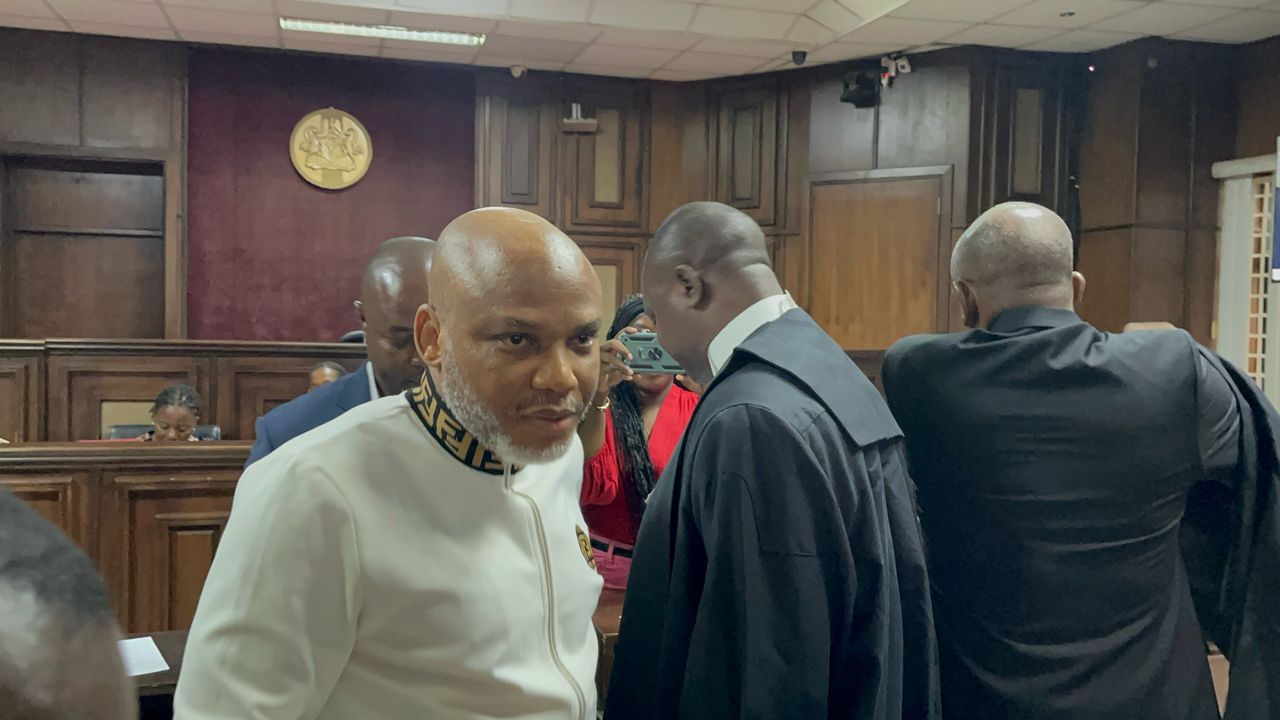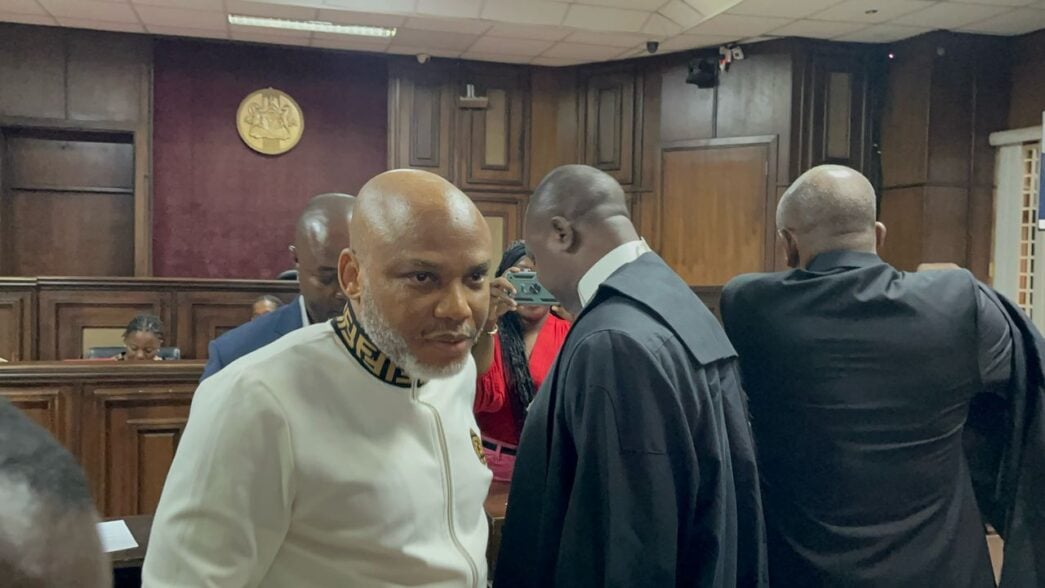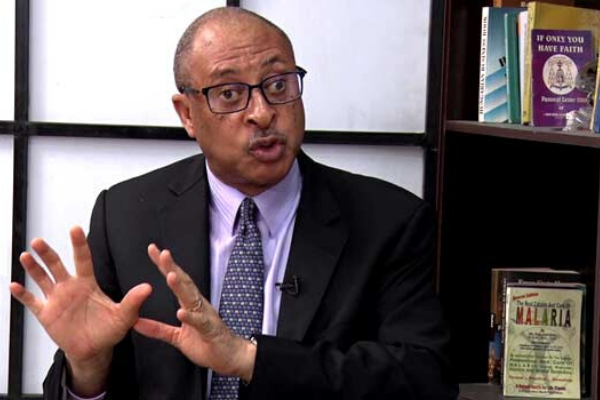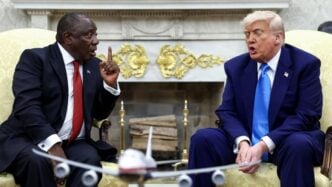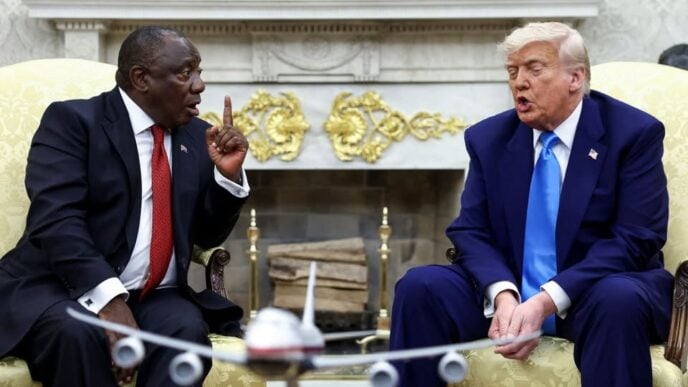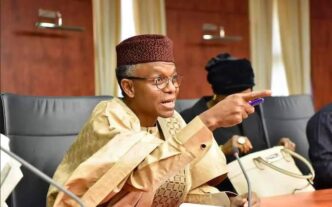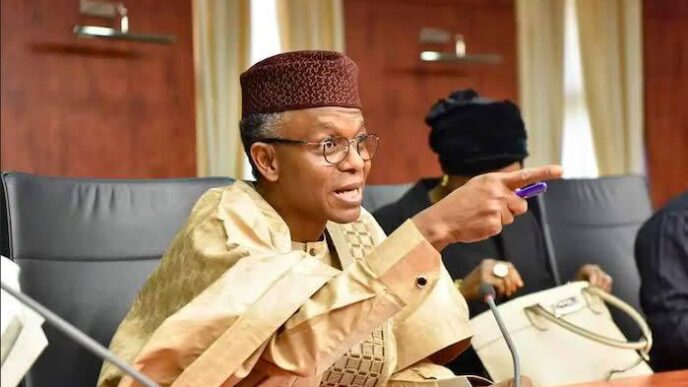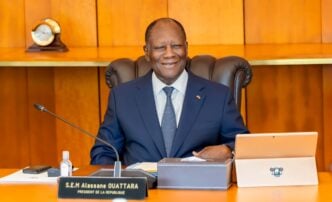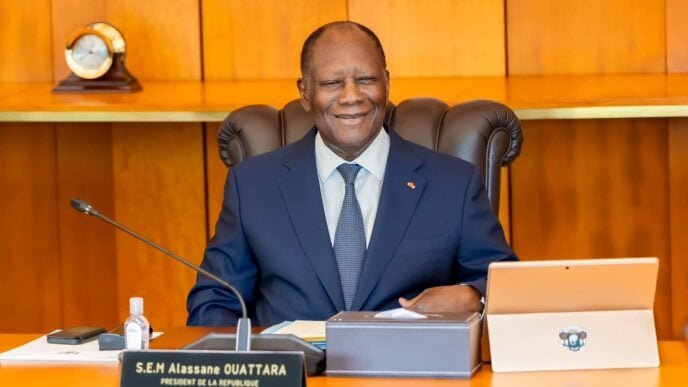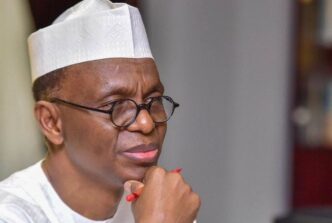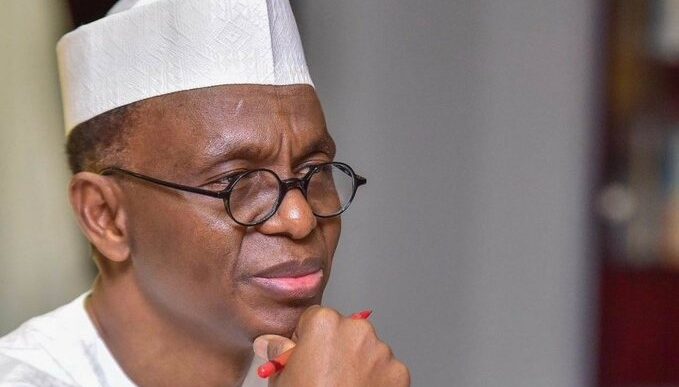Nnamdi Kanu (in white) in court
A witness of the Department of State Services (DSS) has told a federal high court in Abuja that the secret service was not involved in the 2021 arrest of Nnamdi Kanu, leader of the Indigenous People of Biafra (IPOB), in Kenya.
The witness, codenamed BBB for security reasons, spoke on Wednesday during cross-examination by Paul Erokoro, defence counsel.
The witness told the court that DSS handles matters relating to the internal security of the country and does not engage in foreign operations.
“DSS did not kidnap Kanu in Kenya. We are confined to Nigeria. We did not arrest Kanu in Kenya,” he said.
Advertisement
Responding to question on whether the DSS can be influenced by politicians or ministers, the witness said the agency is under the office of the national security adviser (NSA).
He also stated that the attorney-general of the federation (AGF) does not supervise the operations of the DSS.
Asked about the mode of intelligence gathering by the DSS, the witness noted that the sources are many, including human and social media, among others.
The witness further said that owing to their mode of training, DSS operatives have the capacity to get information where necessary.
The witness added that the IPOB leader told him that he was ‘kidnapped’ from Kenya and returned to Nigeria in 2021.
Advertisement
But BBB insisted that the DSS lacks the power to effect an arrest beyond Nigeria’s borders.
He also told the court that Kanu admitted to owning Radio Biafra, adding that the broadcasts incited violence, including during the EndSARS protests in 2020.
He added that the defendant expressed readiness to make Biafra possible by all means, including war.
BBB stressed that the inciting comments made by the IPOB leader led to the burning of a police station in Ebonyi state, a Lagos state high court, and the cargo shed of the Murtala Mohammed Airport in Lagos.
At some point during cross-examination, Erokoro sought adjournment, informing the court that there is a video clip that the defence seeks to tender.
He asked for some time to make that possible.
Meanwhile, the court admitted as evidence certified true copies of judgments of three fundamental rights enforcement lawsuits instituted by the defendant.
They include a judgment of the Abia state high court, federal high court in Umuahia and another by the high court of Enugu state.
Advertisement
Earlier, when the case was called, Kanu Agabi, the lead defence lawyer, and Adegboyega Awomolo, prosecution counsel, expressed concern over the conduct of a defence team member, accusing him of misrepresenting court proceedings on his social media platforms.
Agabi said he got a letter from the prosecution in which it expressed concerns about some publications made on social media.
Awomolo confirmed that he wrote a letter on May 14 protesting the misrepresentations that were being published on social media by Aloy Ejimakor, a member of Kanu’s legal team.
Awomolo said he learnt the court’s proceedings on the case were being streamed live by some individuals, some of whom are lawyers.
Advertisement
The prosecuting lawyer noted that the case is a very sensitive one that should not be trivialised, adding that “it is not fair to manipulate what happened in court in the public domain.”
James Omotosho, the presiding judge, said he granted an accelerated hearing of the case in the interest of all parties, particularly for Kanu, who has been in custody for too long.
Advertisement
The judge charged all parties in the case to act professionally to ensure progress. He further warned Ejimakor to stop such conduct that may warrant the disbarring of a lawyer.
Advertisement
